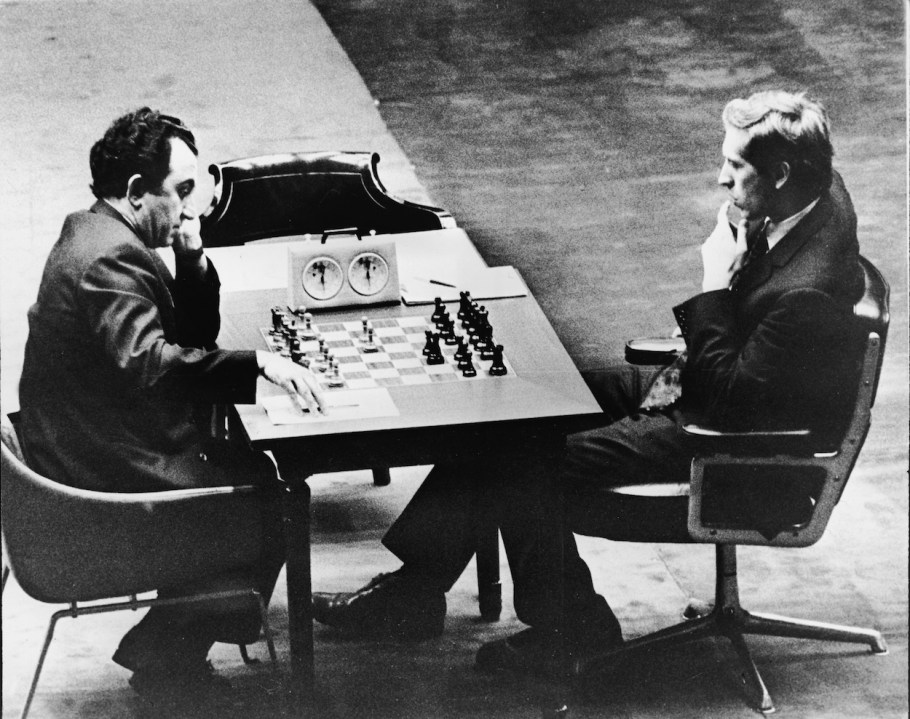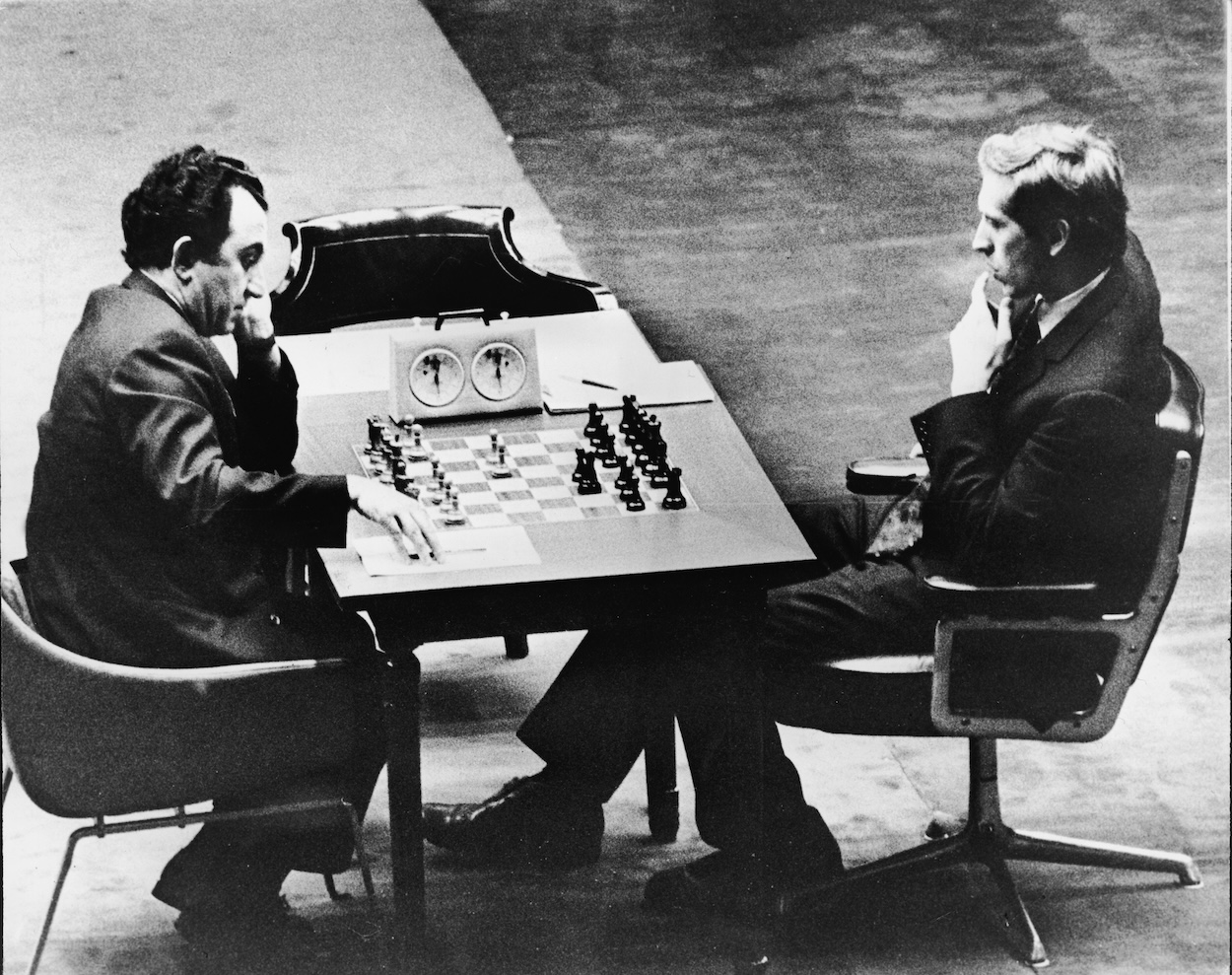When you play a game – cards, backgammon, chess – should you listen to your head or your heart? Do you sit there coldly calculating the odds, or do you go with a hunch, gut instinct, your sixth sense? It’s a question I’m discussing with Marcus du Sautoy as we sit in the Beaumont Hotel in Mayfair, enjoying one of their regular games evenings.
Even if our subconscious picks up on someone’s body language without us registering that that’s what we’ve done, it’s still reason
Marcus laughs when I mention the head or heart choice. ‘Head, of course! I’m a mathematician.’ His latest book, Around the World in 80 Games (which I reviewed for the magazine) examines the games he’s encountered on his travels. It is full of stuff about their histories, how the games relate to local cultures, and indeed philosophical enquiries into why we play games at all. But of course, given his job, Marcus is never very far from crunching the stats, working out ways that maths can give him an advantage.
‘Don’t you ever feel like a few minutes off from the sums?’ I ask. ‘Just to enjoy the game and relax?’ Another laugh. ‘Sums are how I relax. In fact my family know that their best chance of winning is to lead me too far into the maths. I mean a bit of maths that is nothing to do with actually winning the game. My favourite modern game is Settlers of Catan. The board is beautiful – it’s made out of 19 hexagons. Every time you play, you lay down the hexagons in a new way. My family were very clever – they said “oh Dad, I wonder how many different possible boards there are?” They knew this would distract me. I spent ages doing the calculation – it’s more subtle than just 19 factorial – by which time my family had raced away in the game and I was way behind.’
‘So essentially your head and your heart are the same thing?’
‘My wife says I’m so into maths that I don’t have a heart.’
There can be value (other than just fun) in playing by instinct. The Chinese businessman Jack Ma says: ‘I’m not very good, because I don’t want to calculate, I just play by instinct. But I’ve learned a lot of business philosophy by playing poker.’ The quote appears in the Beaumont’s booklet about card games, which accompanies their own-brand decks (the games room is also equipped with bespoke backgammon and chess boards, dice shakers and the like). Certainly poker teaches you about dealing with people. As Victoria Coren Mitchell, who wrote the booklet, says of the game, you need ‘one clean deck of cards, and a number of clean players – good luck finding those’.
Indeed. The magician Ricky Jay used to tell the story of a player who started games by pulling out a razor, placing it on the table and saying ‘there’ll be no cheating in this game, gentleman’. The threat was obvious – but what his fellow players didn’t know was he would then use the highly-polished blade of the razor as a mirror in which to glimpse cards as he dealt them out. As Jay said, ‘I love the idea of calling attention to the very thing you’re using to hustle’.
Magic also offers an insight into the logic vs instinct question. I have recently stumbled into a new career that uses close-up tricks as a corporate team-building exercise – I do the tricks, I don’t tell the team how I do them, they have to work out (with my help) how I do them. It’s amazing what the group brain can achieve – and in particular the interplay of reasoning and hunches. Yes, I tell people at the beginning of the session, some of this will be about you making logical deductions and conclusions. But equally logic can lead you down a dead end, if it’s based on an initial mistaken assumption. And spotting that mistake, questioning that assumption, is a job for the ‘illogical’ brain, the one that likes to think laterally, jump tracks, come at something from an unexpected angle. That’s where instinct can be your friend.
Marcus notes that some cultures around the world ‘prefer to play games where it’s a matter of luck and chance who wins, rather than one where you can plan a strategy. Maybe that’s because they want to embrace a fatalistic outlook on life, instead of one where you can affect your own destiny.’ Funnily enough this isn’t an outlook he shares.
Really serious poker players, and indeed those who play bridge, spend their time memorising books that list the probabilities involved in their respective games, so that numerical knowledge can give them an edge in the heat of battle. But there are also the human elements – the famous poker face needed to conceal emotional reactions to your cards. The legendary American player Doyle Brunson knew his stats, but was just as famous for being able to read opponents’ body language. It’s said he became so good that he could spot an increase in a player’s heart rate by watching the arteries in their neck.
I also tell Marcus about The Truth Detective, a book by the science writer and poker player Alex O’Brien. She mentions a game where the players were having a drink beforehand. One guy asked an opponent how her cup of tea was. ‘Oh, wonderful!’ she replied. ‘This is really good tea.’ Cut to an hour later, when they’re at the table and the tea-drinker has gone all in with her chips. ‘Betty, how do you like your hand?’ asks the guy. ‘Real good hand, Slim!’ comes her reply. But Slim can sense that her tone is slightly different from when he asked about the tea. He calls her with a pair of fives, and wins $100,000.
Marcus enjoys the story, but points out that this is still logic winning the day. It might not be the logic of the cards on the table, but Slim’s detection of a difference in Betty’s tone of voice was still an application of critical thinking. It was scientific analysis of a measurable change in a physical quality. The same is true of Doyle Brunson watching someone’s neck. There’s no mentalism, no feeling in your water, no signal from the gods. It’s reason, pure and simple.
He’s right, of course. Even if our subconscious picks up on someone’s body language without us registering that that’s what we’ve done, it’s still reason. Call it a sixth sense if you like, but that sense is just as logical as the other five. You can play according to your hunches, shunning the reality of logic. For instance you can bet a million on the toss of a coin. But it will only ever be for the sheer, terrifying thrill of it. Instinct will never help you achieve long-term success. In the end, even the heart uses its head.
Details of the Beaumont’s games evenings can be found at here. You can book Mark’s magic sessions here.







Comments